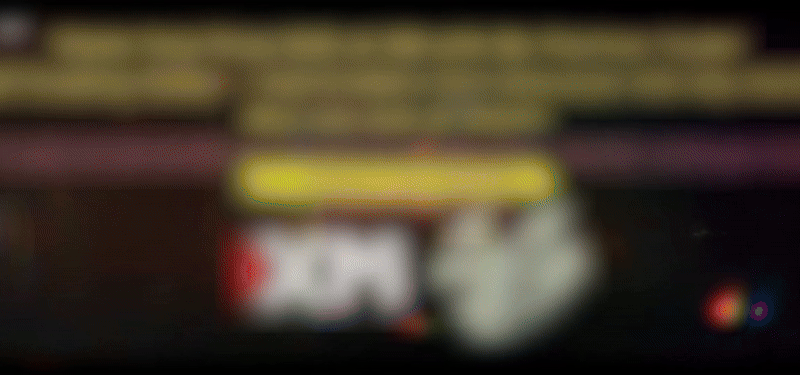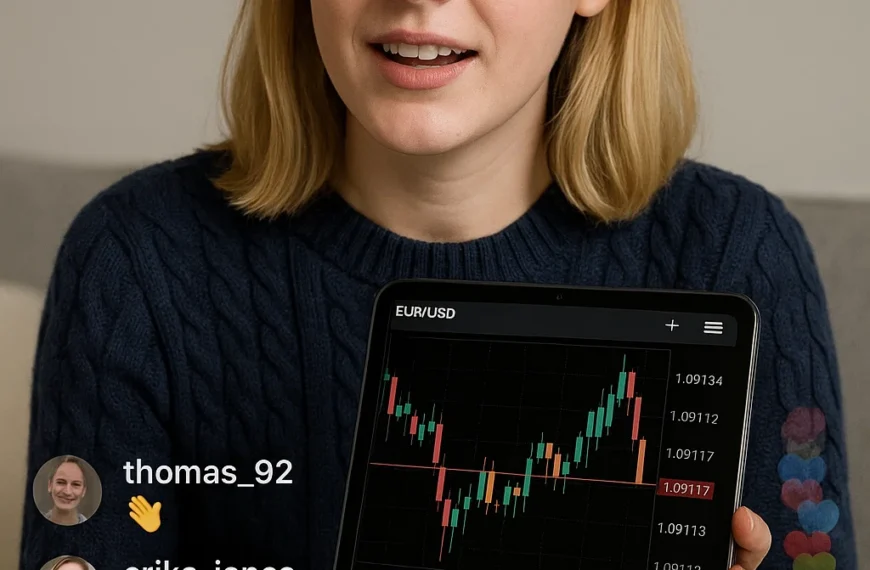Sarah Thompson, a marketing executive in San Francisco, was always stressed. She found relief in Mental Wellness Apps. Her story shows a digital shift in how we care for our minds.
The mental health apps market is booming. In 2024, it hit USD 2.16 billion. It’s expected to grow to USD 4.84 billion by 2030. This growth marks a big change in how we view mental health.
Smartphones are key for Mental Health Apps. With 73% of people worldwide owning one, these apps are more accessible than ever. North America leads with its wide range of innovative apps.
Investors are paying attention. Mental health digital health funding jumped to $2.7 billion in 2024. This shows Mental Wellness Apps are becoming a key part of our lives.
Key Takeaways
- Mental wellness apps market projected to grow to $4.84 billion by 2030
- Smartphone adoption driving widespread mental health app usage
- North America leads in mental health app innovation
- Digital health investment in mental wellness continues to rise
- Apps offering personalized mental health support gaining popularity
Understanding Mental Wellness Apps
Mental wellness apps have changed how we manage our mental health. They mix mindfulness and meditation apps for easy, helpful solutions. This makes it easier for people to take care of their mental well-being.
The world of mental health tech has grown a lot in recent years. Now, with almost 20,000 wellness apps out there, people can get mental health help right on their phones.
Defining Digital Mental Health Support
Mental wellness apps give a lot of support through digital tools:
- Stress reduction techniques
- Meditation guidance
- Anxiety management strategies
- Sleep improvement resources
- Self-monitoring mental health tools
Current Market Overview
The mental wellness app market is growing fast. Digital mental health tools have really taken off, with three times more apps since 2016.
| Market Metric | Current Status |
|---|---|
| Total Wellness Apps | 20,000+ |
| User Interest | 70% interested in self-monitoring apps |
| Average Wait Time Reduction | 14.5 days to immediate support |
Mental wellness apps offer a new way to tackle mental health issues. They provide easy, tailored support for different needs.
Key Features of Popular Mental Wellness Apps
Mental wellness apps have changed how we handle our emotional health. They offer new ways to manage stress and track our well-being. With nearly 57.8 million adults in the U.S. facing mental health issues, these apps provide easy, personal support.
Meditation and Mindfulness Techniques
Anxiety relief apps now use advanced meditation and mindfulness. They help users deal with stress. These apps offer:
- Guided meditation sessions
- Breathing exercise tutorials
- Customizable relaxation programs
- Short, focused stress-reduction techniques
Personalized User Experience
Mood tracking apps create experiences that fit each user’s needs. Personalization is key to engaging users and promoting consistent mental health maintenance. Features include:
- Adaptive content recommendations
- Personal mental health assessments
- Customized wellness plans
- Interactive progress tracking
Progress Tracking and Analytics
Modern mental wellness apps use advanced analytics to show emotional patterns. They provide visual mood changes and progress. This helps users take control of their mental health journey.
“Data-driven insights transform how we approach mental wellness” – Mental Health Technology Research Institute
The global mental health apps market hit $7.09 billion in 2024. This shows the growing need for digital mental health solutions that are easy to use and comprehensive.
The Rise of Mental Health Awareness
The world of mental health is changing fast. More people are talking openly about their mental well-being. Apps for stress and self-care are key in this shift, helping millions in the U.S. deal with mental health issues.
- 50% of the U.S. population is expected to face some mental illness in their lifetime.
- About 36% of mental disorders hit young adults (ages 18-25).
- In 2022, 9.2% of Americans had severe depression.
Factors Driving Mental Health Awareness
Several things are making people want mental wellness solutions more:
- Reduced Social Stigma: More talks about mental health are breaking down old barriers.
- Celebrities and public figures speaking out.
- Better mental health education.
- New tech in self-care apps.
Social Media’s Complex Role
Digital platforms have a mixed role in mental health. They can add to stress but also help with discussions and support. This is thanks to apps for stress management.
The Biden-Harris Administration’s $70 million investment in October 2024 to expand student mental health services shows the growing national focus on mental wellness.
Leading Mental Wellness Apps in 2025
The world of mental health tech has changed a lot. Now, Therapy Apps and Emotional Well-being Apps are key for our well-being. These digital tools keep getting better, helping people with their mental health.
In 2025, three apps stand out in the mental wellness market:
Headspace: Meditation and Mindfulness Pioneer
Headspace is a top Emotional Well-being App. It has:
- Over 1,000 hours of meditation content
- 60% of users actively engaging with anxiety management programs
- Personalized meditation experiences tailored to individual needs
Calm: Comprehensive Mental Wellness Solution
Calm is changing Therapy Apps with new features:
- More than 100 million downloads worldwide
- 50% of users using “Sleep Stories” feature
- Premium subscription at $14.99 monthly or $69.99 annually
BetterHelp: Personalized Professional Support
BetterHelp connects users with licensed therapists:
- 85% user satisfaction rate
- 24/7 access to professional mental health counseling
- Flexible online therapy options
These top Emotional Well-being Apps show the power of digital mental health support. They offer easy, personal, and new ways to care for our minds.
The Role of Technology in Mental Wellness
Digital innovation is changing how we support mental health. Mental Health Apps use new tech to offer personalized wellness help. The global digital mental health market is growing fast, from $23.45 billion in 2023 to $72.3 billion by 2032.
AI Integration in Apps
Artificial intelligence is making Mental Health Apps smarter and more personal. Innovative Mindfulness Apps use AI for:
- Personalized therapy recommendations
- Real-time emotional support through chatbots
- Advanced predictive analytics for mental health tracking
AI helps provide emotional support anytime, filling gaps in traditional services. These systems get better over time, offering more empathetic interactions.
Data Security and Privacy Concerns
With new tech comes the need to keep user data safe. Mental Health Apps must have strong security to keep users’ trust. Key privacy considerations include:
- Encrypted data transmission
- Strict compliance with healthcare privacy regulations
- Transparent data usage policies
As digital mental health solutions grow, keeping tech and privacy in balance is crucial. The success of mental wellness apps depends on creating secure, trustworthy platforms that empower users while protecting their sensitive information.
Target Demographics for Mental Wellness Apps
The world of digital mental health is changing fast. Meditation Apps and Anxiety Relief Apps are reaching out to many people. With 84% of North Americans using smartphones, these apps are getting easier to use for all sorts of people.
Emerging User Profiles
Mental wellness apps meet the needs of different groups. The demand for these apps is growing. This is because more people are talking about mental health.
- Young Adults and Students
- Professionals in High-Stress Jobs
- Seniors Seeking Digital Support
Young Adults and Students
Students and young workers find big help in Meditation Apps. About 23.1% of adults face mental health issues. These apps offer easy ways to handle stress.
Professionals in High-Stress Environments
Most employees, about 79%, feel stressed. Anxiety Relief Apps are key for them. They need quick, easy ways to feel better.
| Demographic Group | App Usage Percentage | Primary Mental Health Concern |
|---|---|---|
| Young Adults (18-29) | 45% | Academic Stress |
| Working Professionals | 38% | Work-Related Anxiety |
| Seniors (60+) | 17% | Social Isolation |
Seniors Embracing Digital Mental Health
Digital mental health solutions are breaking generational barriers. Seniors are using mobile tech to keep their minds sharp and stay connected. This shows that older people are open to new technology.
Mental wellness apps are not just technology—they’re bridges connecting individuals to support, regardless of age or background.
Mental Wellness Apps vs. Traditional Therapy
The world of mental health treatment is changing fast. Therapy apps and stress management apps are becoming more popular. They offer new ways to support mental wellness, especially when traditional therapy is hard to get or too expensive.
Experts say these apps can’t replace real therapy. But they can be great tools for people looking for help.
Cost-Effectiveness Comparison
Therapy apps are cheaper than going to a therapist in person. Here’s why:
- Average therapy app subscription: $10-$20 per month
- Traditional therapy: $100-$200 per session
- Potential savings of up to 80% on mental health resources
Accessibility and Convenience
Digital mental health platforms make it easier to get help. Many rural areas don’t have enough psychiatrists. This makes it hard for people living there to find mental health care.
Stress management apps have big benefits:
- 24/7 accessibility
- Anonymous support options
- Immediate coping strategies
- Flexible engagement from home
*Mental wellness is a journey, and technology can be a powerful companion in that journey.*
Even though therapy apps are very helpful, they shouldn’t replace real therapy. They should be used together for the best care.
Future Trends in Mental Wellness Apps
The world of mental health tech is changing fast. Mood Tracking Apps and Emotional Well-being Apps are leading the way. New developments are changing how we think about mental health.
Virtual Reality Experiences in Mental Health
Virtual Reality (VR) is becoming a key tool for mental health. Studies show VR can help treat many issues by creating real-like therapy spaces. Here are some ways VR is used:
- Treating phobias through controlled exposure
- Managing anxiety with calming virtual landscapes
- Providing PTSD rehabilitation through interactive scenarios
“VR technology offers unprecedented opportunities for personalized mental health treatment” – Digital Health Innovations Report
Gamification in Mental Health Strategies
Emotional Well-being Apps are using games to make mental health fun. They turn therapy into games that keep users interested in their mental health.
- Reward systems for consistent meditation
- Progress tracking with visual achievements
- Challenge-based stress management techniques
AI and machine learning are making these apps even better. They’re creating Mood Tracking Apps that fit each person’s needs and habits.
As digital mental health grows, these new ideas are exciting. They show a bright future for easy, fun mental health support.
User Testimonials and Success Stories
Mental wellness apps have changed how we care for ourselves. They offer personalized mental health support right in our hands. This has helped many people improve their emotional well-being.
Real-Life Impacts
These apps have made a big difference in people’s lives. Studies show they are very effective:
- More than 60% of users say they feel better mentally after using these apps.
- 80% of users see symptom relief in just one month.
- People using mindfulness apps see a 60% drop in stress after 10 sessions.
Community Feedback and Ratings
Users’ ratings and feedback show how powerful these apps are. The average rating for top mental health apps is 4.5 out of 5 stars. People love the benefits they get:
- Personalized emotional tracking
- Easy access to mental health resources
- Lower costs for therapy
- Flexible support options
“These apps have been a game-changer in managing my daily stress and understanding my emotional patterns.” – A verified user
45% of users use mental health apps at least once a week. These apps are now a key part of self-care in today’s world.
Investment Opportunities in the Mental Wellness Space
The mental health apps market is attracting investors looking for big opportunities. As digital health grows, venture capitalists see the chance to change mental wellness support through therapy apps.
Major Investors Driving Innovation
Investments in mental health tech have grown a lot. In 2022, the average deal size for these companies was $10 million. The value after deals reached $97 million. This shows investors believe in digital mental health solutions.
- Median venture capital deal size grew from $8 million to $10 million
- Post-valuations increased from $40 million to $97 million
- Point solution mental health deals averaged $12 million
Startup Ecosystem Highlights
Many Mental Health Apps have gotten big funding, showing the sector’s promise:
| Company | Funding Round | Amount Raised |
|---|---|---|
| Brightline | Series C | $115 million |
| Equip Health | Series B | $58 million |
| Eleanor Health | Series C | $79 million |
The global health and wellness apps market hit US$1.6 billion in 2021. Mental health apps grew by 32% from 2019 to 2020. With over 20,000 apps and a 20% growth rate each year, there’s still a lot of potential for investment.
The mental health technology sector represents a critical intersection of innovation, healthcare, and social impact.
Tips for Choosing the Right Mental Wellness App
Finding the right mental wellness app can be tough. With over 25,000 options, picking the best one is crucial. Your mental health journey is unique, and you need an app that truly supports you.
When looking at meditation apps, focus on clear goals and user-friendly design. User reviews and ratings are key to understanding an app’s value. Choose apps with a wide range of content, like calming sounds and articles, for a well-rounded approach to mental wellness.
Think about what you need and how much you can spend. Some apps are free, while others cost money each month. Check if your insurance covers any app subscriptions. Also, make sure the app’s privacy policy is clear, especially if you’ll use journaling features.
Technology changes fast, so pick an app that keeps its content fresh and easy to use. The best mindfulness apps grow with you, offering flexible tools for your mental health journey.
FAQ
What exactly are mental wellness apps?
Are mental wellness apps a replacement for professional therapy?
How do mental wellness apps protect user privacy?
Can mental wellness apps really help manage anxiety and stress?
Are mental wellness apps expensive?
FAQ
What exactly are mental wellness apps?
Mental wellness apps are digital tools that help improve mental health. They offer meditation, mood tracking, and stress management. These apps make mental health support easy and convenient.
Are mental wellness apps a replacement for professional therapy?
No, they are not a full replacement for therapy. They offer support and strategies but should not replace professional help for serious issues.
How do mental wellness apps protect user privacy?
Good apps use strong security like encryption and follow privacy laws. Always check the app’s privacy policy before sharing personal info.
Can mental wellness apps really help manage anxiety and stress?
Yes, they use proven techniques like meditation and CBT. These can help manage anxiety and stress and improve emotional health.
Are mental wellness apps expensive?
Most apps have free versions and premium options. Prices range from
FAQ
What exactly are mental wellness apps?
Mental wellness apps are digital tools that help improve mental health. They offer meditation, mood tracking, and stress management. These apps make mental health support easy and convenient.
Are mental wellness apps a replacement for professional therapy?
No, they are not a full replacement for therapy. They offer support and strategies but should not replace professional help for serious issues.
How do mental wellness apps protect user privacy?
Good apps use strong security like encryption and follow privacy laws. Always check the app’s privacy policy before sharing personal info.
Can mental wellness apps really help manage anxiety and stress?
Yes, they use proven techniques like meditation and CBT. These can help manage anxiety and stress and improve emotional health.
Are mental wellness apps expensive?
Most apps have free versions and premium options. Prices range from $0 to $20 a month, making them affordable compared to therapy.
Which mental wellness apps are most popular in 2025?
Headspace, Calm, and BetterHelp are the top apps. They offer personalized meditation, therapy, mood tracking, and easy-to-use interfaces for different needs.
How do mental wellness apps use artificial intelligence?
AI helps create personalized experiences by analyzing data. It offers tailored recommendations, chatbot support, and adapts content to individual needs.
Are mental wellness apps suitable for all age groups?
Yes, they cater to all ages. Each app has features for young adults, professionals, and seniors, addressing unique mental health challenges.
What technologies are emerging in mental wellness apps?
New technologies include virtual reality, AI-driven personalization, and gamification. They also integrate wearables and use advanced analytics for emotional tracking.
How can I choose the right mental wellness app for me?
Think about your mental health goals and read reviews. Try free trials, check features, and ensure the app is scientifically backed and fits your preferences.
to a month, making them affordable compared to therapy.
Which mental wellness apps are most popular in 2025?
Headspace, Calm, and BetterHelp are the top apps. They offer personalized meditation, therapy, mood tracking, and easy-to-use interfaces for different needs.
How do mental wellness apps use artificial intelligence?
AI helps create personalized experiences by analyzing data. It offers tailored recommendations, chatbot support, and adapts content to individual needs.
Are mental wellness apps suitable for all age groups?
Yes, they cater to all ages. Each app has features for young adults, professionals, and seniors, addressing unique mental health challenges.
What technologies are emerging in mental wellness apps?
New technologies include virtual reality, AI-driven personalization, and gamification. They also integrate wearables and use advanced analytics for emotional tracking.
How can I choose the right mental wellness app for me?
Think about your mental health goals and read reviews. Try free trials, check features, and ensure the app is scientifically backed and fits your preferences.





